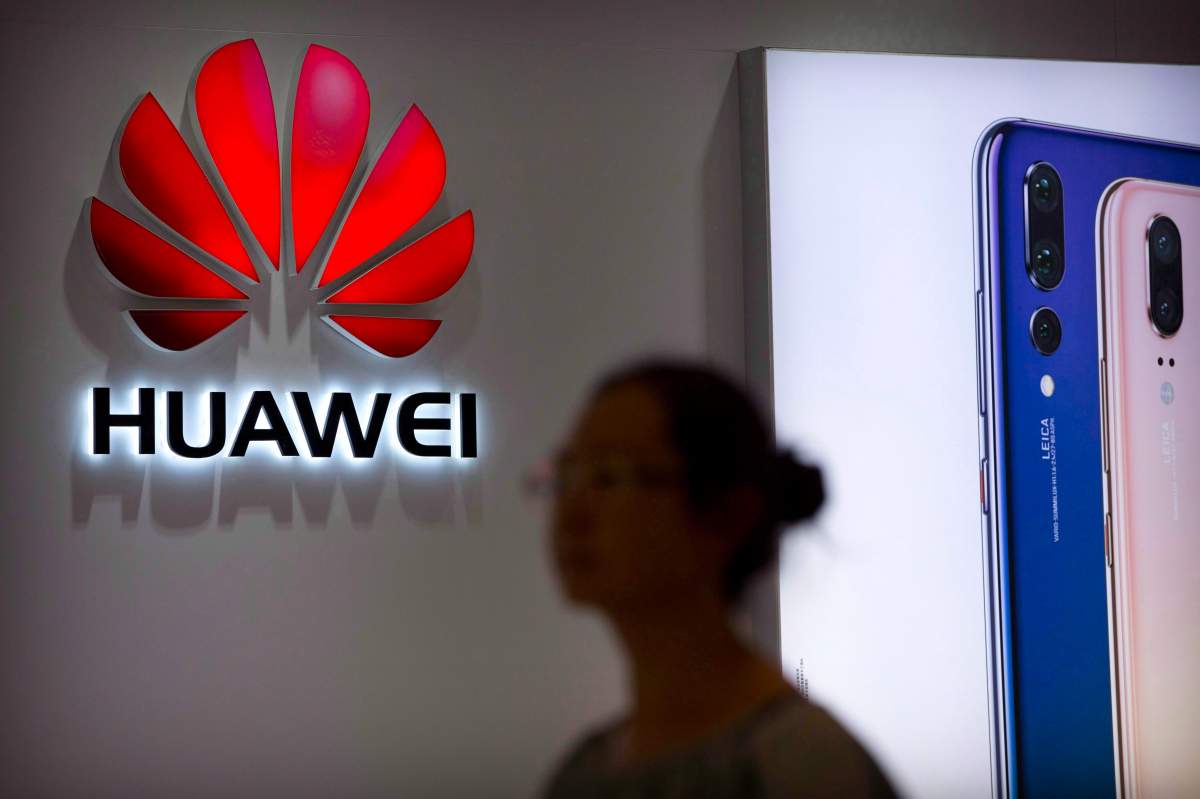Canadian authorities have arrested the chief financial officer of Chinese telecommunications giant Huawei Technologies in Vancouver, B.C.

Meng Wanzhou, who also goes by Sabrina Meng, was arrested in Vancouver on Saturday, Dec. 1, Justice Department spokesperson Ian McLeod told Global News. A court hearing has been set for Friday.
He said Meng faces extradition to the U.S., and that a bail hearing has been set for Friday.
“As there is a publication ban in effect, we cannot provide any further detail at this time,” McLeod said. He added that the publication ban was sought by Meng.
Meng was changing flights in Canada when she was detained to face “unspecific charges” in New York, Huawei said in a statement.
“The company has been provided very little information regarding the charges and is not aware of any wrongdoing by Ms. Meng,” read Huawei’s statement.
“The company believes the Canadian and U.S. legal systems will ultimately reach a just conclusion.”
Huawei added that it complies with all laws and rules where it operates, including export controls and sanctions of the United Nations, the U.S. and European Union.
LISTEN: The chief financial officer of Chinese tech giant Huawei has been arrested in Canada. She faces extradition to the United States.
The Chinese embassy in Ottawa said Meng was arrested despite her “not violating any American or Canadian law,” adding that the arrest constituted a breach of her human rights.

Get daily National news
“The Chinese side has lodged stern representations with the U.S. and Canadian side, and urged them to immediately correct the wrongdoing and restore the personal freedom of Ms. Meng Wanzhou,” an embassy spokesperson said.
WATCH: China calls on Canada, U.S. to release Huawei CFO after being arrested in Vancouver

“We will closely follow the development of the issue and take all measures to resolutely protect the legitimate rights and interests of Chinese citizens.”
Meng’s arrest, which was first reported by the Globe and Mail, comes less than two months after U.S. lawmakers sent Prime Minister Justin Trudeau a letter urging Canada to ban Huawei’s equipment from Canadian wireless networks.
In a letter obtained by Global News, Republican Sen. Marco Rubio and Democratic Sen. Mark Warner conveyed “grave concerns” over the possibility that the Chinese government might be using Huawei equipment to spy on and interfere with foreign governments.
“There is ample evidence to suggest that no major Chinese company is independent of the Chinese government and Communist Party,” they wrote.
WATCH: Canada yet to block 5G technology from China’s Huawei

U.S. authorities have been probing Huawei’s alleged shipping of American-origin products to Iran in violation of U.S. export and sanctions laws, sources told Reuters in April.
Meng, the 46-year-old daughter of Huawei founder Ren Zhengfei, has previously been suspected of involvement in Huawei’s alleged ties to Iran.
In 2013, Reuters revealed that Meng served on the board of Skycom Tech, a Hong Kong-based firm that attempted to sell embargoed computer equipment to Iran’s Mobile Telecommunication Co. in violation of trade sanctions.
READ MORE: U.S. to reinstate sanctions on Iran that were previously lifted under 2015 nuclear deal
At least 13 pages of a proposal to sell Hewlett-Packard computer equipment to Iran were marked “Huawei confidential,” Reuters reported.
Skycom was described by Huawei as one of its “major local partners,” although the Chinese company said neither it nor Skycom ultimately provided the HP equipment.
Huawei said its relationship with Skycom was “a normal business partnership,” and that its business in Iran was in compliance with all applicable laws and regulations.
WATCH: Trudeau says decision to ban Huawei 5G technology will be based on facts and evidence

Meng’s arrest heightened the sense of a major collision between China and the U.S., not just over tariffs but also over technological hegemony.
U.S. President Donald Trump Trump has threatened to raise tariffs on Chinese goods in response to complaints that Beijing improperly pressures foreign companies to hand over technology.
READ MORE: China and U.S. agree to not raise tariffs within 90 days, White House says
That is widely seen as part of a broader effort by Washington to respond to intensifying competition with Chinese technology industries that Trump says benefit from improper subsidies and market barriers.
U.S. stock futures tumbled following news of Meng’s arrest, as Asian markets looked poised to follow.
— With files from Reuters and Global News reporter Rebecca Joseph









Comments